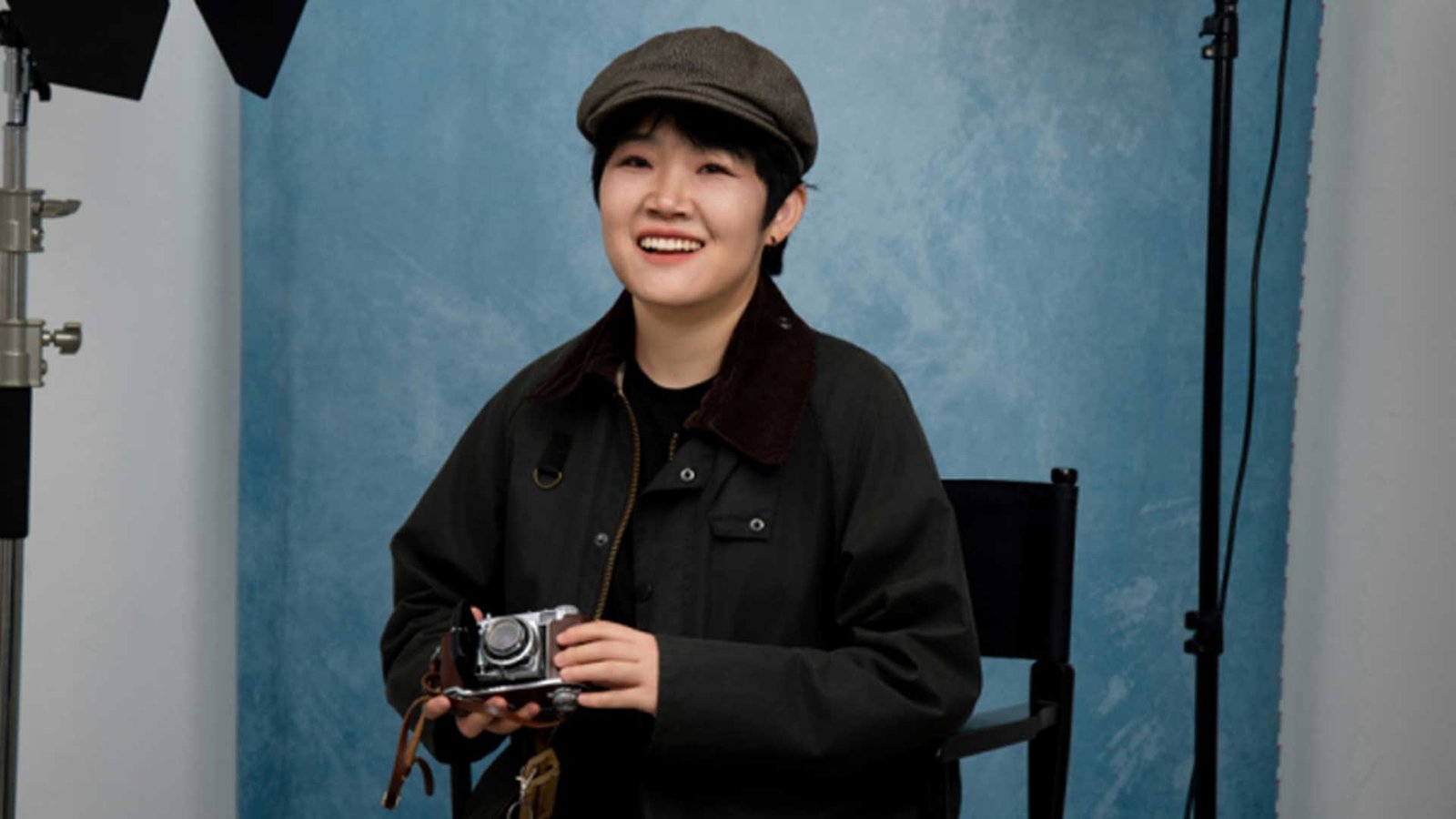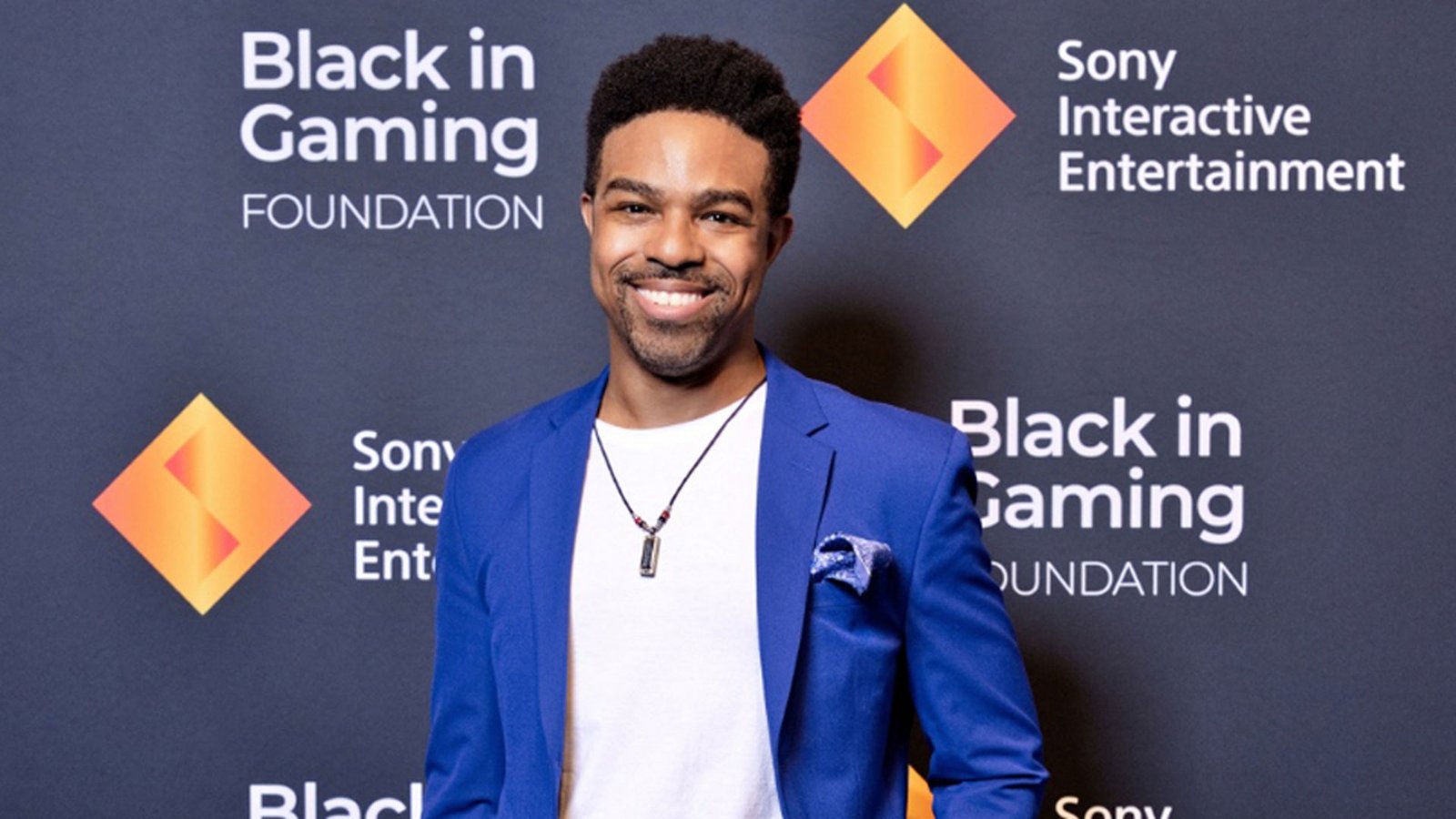
Danni Chang’s Futuristic Stage Design for “Come On! Commentator: Asian Games & E-Sports Season”
June 17, 2025
Behind the Design: Yifei Wang Talks Building QCharge Online Identity
June 18, 2025
Danni Chang’s Futuristic Stage Design for “Come On! Commentator: Asian Games & E-Sports Season”
June 17, 2025
Behind the Design: Yifei Wang Talks Building QCharge Online Identity
June 18, 2025Chase Bethea
Chase Bethea is a multi-award-winning video game composer with 30+ games shipped. His Cubic Climber soundtrack earned a Noteworthy on Destructoid. He was nominated for Artist of the Year in 2016 for I Can’t Escape: Darkness and scored Aztec Ride, a Mobile Game award nominee.
Thank you, NYX Game Awards. I’m honored to be recognized and receive this award!
My name is Chase Bethea, and I’m a multi-award-winning video game composer and technical music designer—known in the industry as the "Swiss Army knife of video game composition." I’ve worked in the industry for over a decade and have shipped more than 30 games to date. My music blends texture and complexity, creating immersive experiences for players.
My soundtrack for Cubic Climber earned a Noteworthy on Destructoid. In 2016, I was nominated for Artist of the Year – Independent Composer for my score for I Can’t Escape: Darkness. I also scored Aztec Ride, which was also nominated for a Mobile Game award.
Over the past two and a half years, I’ve given more than 55 talks as a guest speaker at conferences including the 2022 Global Game Jam (Keynote Speaker), GDC (6x), PAX, Audiokinetic, MAGWest (4x), IGDA, GameSoundCon (2x), Berklee College of Music (2x), Game Devs of Color (4x), ADC, A2IM, Indie Game Business, and EPOS Gaming.
I was the first minority American video game composer to be featured in the Museum of Making Music’s “MIDI@40” exhibit at the NAMM Museum in San Diego (2023–2024). In 2024, I made history again as the first video game composer to join the prestigious Mogami Cable roster. That same year, I became the first minority American video game composer to publish an article on adaptive music in games for Recording Magazine—their first video game music feature in 20 years. I also served as Chair of the Interactive Audio Special Interest Group (IASIG) from 2022 to 2024.
I was born and raised in Chicago and began composing music in the 5th grade. I played in the advanced band and choir through 7th grade. I earned my AA in Audio Engineering from The Los Angeles Recording School, my AA in Music Theory and Composition from Moorpark College, and my BM in Media Composition from California State University, Northridge—all with honors.
Game music writing began for me when I unlocked a behind-the-scenes video in God of War III and watched an interview about how uniquely a game score can be written—and the “tremendous amount of freedom” that comes with it.
When I first entered the industry, my passion was overflowing. I believed that with hard work, I might be able to score a AAA game within five years. I was very wrong. Still, I stayed focused, poured my passion into the games I was fortunate to score, and kept going.
In recent years, that passion has waned. I now struggle to keep the “blue flame” alive, largely due to repeated experiences with unprofessional mindsets that have worn me down. I no longer see the maturity and sustainable growth I once believed in when I started this career 14 years ago.
The programmer, David Maletz from Fancy Fish Games, came up with the idea while reminiscing about one of our first commercial projects, I Can’t Escape: Darkness (ICED), a 3D game. He really liked many aspects of that project, especially the lighting system, and even had plans for a sequel. He thought—why not make a 3D Aground spinoff? This idea came shortly before April 2021 and led to the April Fool’s joke Aground: Minecraft Edition—a farcical but partially true concept.
From there, he repurposed a voxel engine he had created for fun and incorporated several ideas originally intended for a potential colony update for Aground. The resulting game leaned more toward colony management and base-building than the original, which suited him well, as he enjoyed trying something different. He saw it as a unique spinoff with gameplay that was similar, yet distinct, from Aground.
The music score was designed entirely with the player in mind. The goal was to break the monotony often found in survival and crafting sims by composing seamless fusion transitions that create a harmonious gameplay experience.
I believe it's about brand definition and sonic identity. In a competitive field, dynamic music serves as a unique selling point for colony sims, management, and base-building games—potentially the first of its kind in this era. By offering smooth and responsive audio experiences, players can clearly distinguish the game from others in the genre, attracting both audiences and critical acclaim.
Dynamic music also allows for varied themes and transitions, enhancing replayability. Players are more likely to return if each playthrough delivers a fresh, unique, and personalized musical experience based on their choices and outcomes. It builds memorable moments, exclusive stories to share, and deep nostalgia that lasts for years.
Additionally, dynamic music systems can benefit players with disabilities by providing extra sensory cues and feedback. For example, visually impaired players may rely on auditory signals to navigate the game world, making adaptive music an important accessibility feature.
Staying motivated was a challenge. The response to the game wasn’t as strong as the original, likely due to the shift in art style from 2D to 3D. As a result, I struggled to stay inspired and generate new ideas. There was this strange expectation that the music would automatically be good—that I would just deliver. So, I had to push myself to go beyond that assumption, essentially writing against my own past work and convincing myself that it could be even better.
One tactic I used was simply giving myself more time—sometimes a month or more—to compose each piece. That approach worked well. It let the creativity emerge naturally, without forcing it. What I’ve discovered is that some of my best work has come from taking more time to complete a piece, rather than rushing it. I wouldn’t begin composing until I could clearly visualize and mentally walk through the process before actually writing the music.
The biggest change I’ve seen is how the industry buys into more fear, and as a result, many suffer from it. Instead of becoming more strategic and creative in finding other resources, people panic and withdraw. I’ve adapted by exploring beyond game development and operating with a mindset of abundance.
The field may dominate other art mediums combined, but if it’s not the most sustainable, I’m keen to find where that will be, take a side quest there for a while, and come back to the main quest with more experience.
A studio that values people and treats them with respect operates with good business acumen and mental maturity. They remain optimistic while maintaining a pragmatic balance. These attributes are important for long-lasting collaboration and healthy game development cycles. It builds solid trust within the team.
Morale stays steady, if not uplifted, and creativity flows more freely. It’s the people who treat themselves with respect, consistency, and reciprocity that make the studio great—not the studio that makes the people. From this, the people who are treated right produce multiple great games.
Chase Bethea
Chase Bethea is a multi-award-winning video game composer with 30+ games shipped. His Cubic Climber soundtrack earned a Noteworthy on Destructoid. He was nominated for Artist of the Year in 2016 for I Can’t Escape: Darkness and scored Aztec Ride, a Mobile Game award nominee.
Explore the journey of INT Games Studio, the Silver Winners of the 2025 NYX Game Awards. They blend narrative twists, brain-bending puzzles, striking art, and sharp code—Qiuyan crafts the story and gameplay, Angela builds the world and brings it to life, together channeling years of industry experience into unforgettable indie games.


